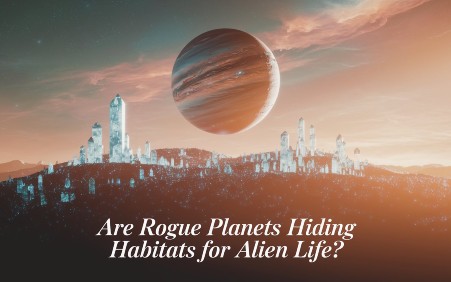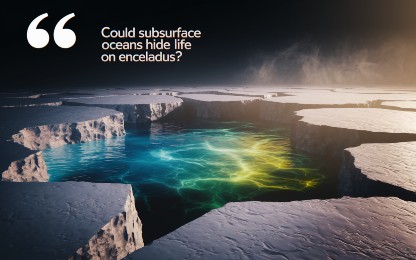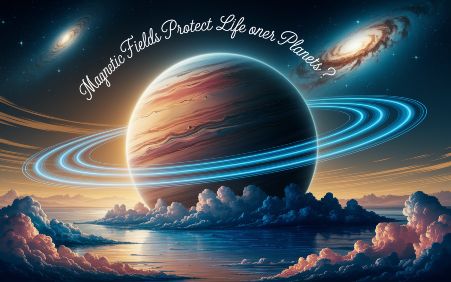Introduction
Venus glows in the night sky and raises many questions. Could humans live on Venus’ clouds is one such question. Venus may seem uninhabitable but its upper clouds could offer a way. Earth-like pressure and temperature exist high in its sky. This opens ideas for floating habitats. The question could humans live on Venus’ clouds sparks new visions in space science. Each paragraph explores a different angle on this bold idea.
Why Venus Caught Human Attention
Venus is the brightest object in the sky after the Moon. Could humans live on Venus’ clouds makes it more interesting. Venus is almost Earth’s twin in size and gravity. It also sits close to the Sun. Ancient astronomers called it the morning star. This long-standing fascination keeps interest alive. Could humans live on Venus’ clouds drives space agencies to explore deeper. The planet offers both mystery and danger.
Venus’ Harsh Surface Conditions
Venus has one of the harshest surfaces in the solar system. Could humans live on Venus’ clouds if its ground burns? Its surface reaches about 900 degrees Fahrenheit. That is hot enough to melt lead. Pressure on Venus crushes like a deep-sea trench. This makes landing and staying on the ground almost impossible. Still we ask could humans live on Venus’ clouds since surface life is ruled out.
The Atmospheric Sweet Spot
Above Venus’ surface lies a narrow zone of hope. Could humans live on Venus’ clouds in this sweet spot? About 30 to 40 miles above the surface the pressure is close to Earth’s. The temperature is also more stable. It stays near 85 degrees Fahrenheit. Here the thick clouds may block deadly radiation. That makes this layer a target for human plans. Could humans live on Venus’ clouds within this layer excites many minds.
The Role of Sulfuric Acid
Venus’ clouds hold sulfuric acid droplets. Could humans live on Venus’ clouds if acid surrounds them? Sulfuric acid eats through most materials. Spacesuits and habitats must resist strong acid. Engineers study how to build acid-proof floating stations. Could humans live on Venus’ clouds if they use high-tech shields? Materials like Teflon or advanced polymers may work. Safety depends on strong protection from chemical harm.
Proposed Floating Habitats
NASA proposed a concept called HAVOC. Could humans live on Venus’ clouds through this kind of mission? HAVOC stands for High Altitude Venus Operational Concept. It would place airships in Venus’ upper atmosphere. These airships would float using lighter-than-air gas. Could humans live on Venus’ clouds in these flying labs? Yes if power systems life support and materials survive the acid air. Engineers think solar power could help due to high sunlight.
Gravity and Health Factors
Venus has 90 percent of Earth’s gravity. Could humans live on Venus’ clouds with less health risk? On the Moon and Mars gravity is much lower. Long stays in low gravity weaken bones and muscles. Could humans live on Venus’ clouds if gravity helps health? Stronger gravity may ease some of those problems. This is one more reason to explore Venus as a target.
Communication and Travel Challenges
Could humans live on Venus’ clouds if contact is hard? Venus sits closer to Earth than Mars at times. This helps with travel time and fuel. But it rotates very slowly. A day on Venus lasts longer than its year. Could humans live on Venus’ clouds despite slow rotation? That adds problems for power and communication. Teams must design systems to handle long nights and acid-filled storms.
Air Composition and Life Support
Venus’ air is mostly carbon dioxide. Could humans live on Venus’ clouds with no oxygen? Floating habitats must carry their own breathable air. Systems would also need to remove CO2. Could humans live on Venus’ clouds if we recycle air and water? Closed-loop life support becomes vital. Lessons from the ISS will guide this design. Engineers must create reliable sealed systems.
Power From the Sun
Venus reflects sunlight well. Could humans live on Venus’ clouds using solar panels? Solar energy works better on Venus than on Mars. Floating cities could use this power to run systems. Could humans live on Venus’ clouds with constant solar energy? The sunlight could help make floating homes sustainable. Power supply is a major challenge but sunlight could solve it.
Dangers of High Winds
Could humans live on Venus’ clouds if storms sweep the sky? Winds in Venus’ upper atmosphere blow over 200 miles per hour. These high-speed winds circle the planet. Could humans live on Venus’ clouds with that wind force? Floating stations must stay stable and secure. Designs may use balloons that adjust height to avoid extreme winds. Venus’ wind patterns add to the risks.
Robotic Missions and Research
Many missions have studied Venus. Could humans live on Venus’ clouds based on data from those missions? Soviet Venera probes lasted only minutes on the surface. They gave valuable images and heat data. Could humans live on Venus’ clouds with better tools now? New missions will study the cloud zone in detail. Robotic airships and drones could lead the way.
Terraforming Venus Is a Distant Dream
Some dream of changing Venus itself. Could humans live on Venus’ clouds while waiting for terraforming? Making Venus like Earth is a huge task. Cooling the surface or changing its atmosphere could take centuries. Could humans live on Venus’ clouds during that time? Floating habitats may be the only option for now. Terraforming remains science fiction for the moment.
Comparison With Mars
Mars gets most attention for colonization. Could humans live on Venus’ clouds and skip Mars? Mars is cold and dry with low pressure. Venus has dangerous air but better temperature at height. Could humans live on Venus’ clouds if tech supports it? Some experts say it could happen before Mars settlement. The debate between the two planets continues.
Psychological and Social Factors
Life in the clouds may be lonely. Could humans live on Venus’ clouds without losing morale? Social life must stay strong in floating cities. Group activities and virtual tools will help. Could humans live on Venus’ clouds with mental health support? Yes if care and structure are built in. Teams must plan for human emotions and needs.
International Space Plans
Agencies like NASA ESA and Roscosmos show interest. Could humans live on Venus’ clouds with global support? Teamwork helps share cost and knowledge. Japan’s Akatsuki spacecraft studies Venus’ weather now. Could humans live on Venus’ clouds using shared missions? Global science grows faster with joint work. A shared future in space may start with clouds on Venus.
Public Interest and Media
Science fiction boosts public support. Could humans live on Venus’ clouds if public passion grows? Books and films explore floating worlds. This creates excitement and funding. Could humans live on Venus’ clouds with more media stories? Public love for space drives budgets and goals. Media outreach may help Venus missions rise.
Summary and Outlook
Could humans live on Venus’ clouds remains a thrilling idea. Harsh air conditions and wind pose real threats. Still the cloud layer has Earth-like features. Research is ongoing. With effort and teamwork floating cities may come. Could humans live on Venus’ clouds may soon change from question to plan.
Pros and Cons Table
| Pros | Cons |
|---|---|
| Earth-like pressure in cloud layer | Presence of sulfuric acid in the clouds |
| Stable temperature in upper atmosphere | Violent winds and storms |
| Near-Earth gravity helps human health | No oxygen and toxic air |
| Solar power is highly effective | Communication delays and long nights |
| Closer distance to Earth than Mars | Technical limits of floating infrastructure |
Frequently Asked Questions
What makes Venus’ clouds special for humans?
The upper clouds have pressure and temperature close to Earth’s. Could humans live on Venus’ clouds if we stay in that zone? Yes with proper tech.
Can floating stations resist sulfuric acid?
Materials like Teflon may help. Could humans live on Venus’ clouds if materials hold up? That remains under test.
Is Venus better than Mars for colonization?
It depends on goals. Could humans live on Venus’ clouds with support systems? Some say yes faster than Mars.
How would people get to Venus?
Spacecraft can reach Venus in a few months. Could humans live on Venus’ clouds after that trip? If tech works yes.
Will we see this in our lifetime?
Maybe not yet. Could humans live on Venus’ clouds in 50 years? If interest grows and funding comes yes.
Conclusion
The idea could humans live on Venus’ clouds is bold yet not impossible. Venus’ deadly ground forces us to think above. High in its skies we find hope. With strong design and teamwork we may float in Venus’ sky one day. Could humans live on Venus’ clouds may become the next great step in space life.





